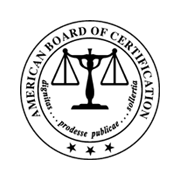
506 N. Armenia Ave. Tampa FL 33609 | 813-870-3100
Creditor who was not represented by counsel ordered to pay over $41,000 for violating bankruptcy law in filing criminal embezzlement charges in attempt to collect debt:
While criminal proceedings are not stayed by the bankruptcy laws, when a creditor files criminal charges simply in an attempt to collect a debt, they may face the wrath of the bankruptcy judge. This was the case in a July 15 decision in North Carolina, In re Kimbler. The debt involved a consignment shop, Cherishables Antiques, that rented booths for selling antiques and collectibles. The creditor: Dority, rented a booth at the shop for $125/mo plus 10% commission on items sold for less than $100 and 15% on items sold for more. Cherisables closed in May or June 2019, after notifying vendors to remove inventory and follow a procedure for reconciling inventory and sales. Dority did not follow this procedure. Per Cherishables, Dority owed them $150, Dority asserted Cherishables owed him $3,989.25. Dority filed a small claims complaint on 16 August 2019 alleging a $1,400 debt asserting Cherishable sold items without giving him funds. On 11 September 2019 Debtor filed a pro se chapter 7 bankruptcy listing the $3,989.25 debt alleged by Dority to be owed.
At trial on 12 September in the small claims action the small claims judge adjourned the trial as being stopped by the bankruptcy. Mr. Dority then became angry due to the adjournment and claims he was advices by the court and others to seek criminal embezzlement charges against the debtor. He then went to the local police department to file a criminal complaint. On 24 October the state court issued warrants for the arrest of debtor for felony embezzlement and set bail for $4,500. The debtor could not post this, and was incarcerated for 17 days before being released while required to wear an ankle bracelet, for which she was charged $883.50. Debtor was 61 years old when incarcerated, which made it more difficult to adapt to incarceration; and when released was unable to continue her employment with an advertising agency from which she was earning about $1,000/month. The experience caused severe emotional distress for her and her 19 year old son.
The debtor received a discharge from the bankruptcy court, indicating that the case was complete and all debts that could be eliminated were eliminated, on 31 December 2019. On 3 January 2020 Debtor's new counsel sent a letter to Dority and the district attorney asserting that they violated the bankruptcy law prohibiting collection of debts that are able to be discharged in bankruptcy, and directing Dority to cease efforts to collect the debt and that he may seek sanctions against him in the bankruptcy court. Dority took no action in response to the demand letter, and the criminal charges remained pending as of the issuance of the bankruptcy court's order. The debtor reopened the bankruptcy and filed for actual and punitive damages against Dority.
In order to obtain sanctions, a party must show 1) that a violation occurred, 2) that the violation was willful, and 3) that the violation caused actual damages. Bankruptcy law provides an exception to the automatic stay for the commencement or continuation of a criminal proceeding against the debtor. However, this exception does not apply if the primary purpose is to recover a debt that can be discharged in the bankruptcy. The court concluded that bankruptcy proceedings offer ample protections who are owed monies due to larceny, fraud or other willful injury inflicted by debtor. Rather than evaluate his rights in the bankruptcy case, Dority decided to pursue debt recovery through criminal proceedings. Whether or not anyone in the state court recommended such course, such actions violated the automatic stay.
Further, such actions were willful. Dority received actual knowledge of the bankruptcy and the automatic stay at the small claims trial. His actions caused a willful and malicious injury to the Debtor that harkens back to the days of debtor's prisons in Victorian England. The sole cause of Debtor's undeserving hardship are the borderline unlawful and malicious actions of Dority, who had no contrition, regret, or remorse for his actions. Debtor thereby suffered sustained actual damages by being unable to work and the cost of the ankle monitor, attorneys fees, and extensive, deep, harmful and significant emotional distress.
The bankruptcy court granted the request for sanctions, and awarded a total of $40,979.50 damages consisting of $5,000 actual damages for lost income for five months, $883.00 for the ankle monitor, $7,096.50 for fees for Debtor's counsel, $1,000/day punitive damages for each of the 16 days Debtor was incarcerated, and $100/day punitive damages for each of the approximately 120 days Debtor wore an ankle monitor.
Note that as the court noted the actions of Dority were willful and malicious, a future bankruptcy by him would not discharge the obligation.
Michael Barnett, Esq.
Michael Barnett, PA
506 N Armenia Ave.
Tampa, FL 33609-1703
813-879-3100
Over 25 Years in Florida

Michael Barnett has provided his services in and around Tampa, Florida covering Hillsborough, Pasco and Polk County for over 20 years.
Board Certified

Mr. Barnett is board certified by the American Board of Certification in consumer bankruptcy law, and has been board certified since January 1993.
BBB Accredited

The BBB has determined that this business meets accreditation standards.